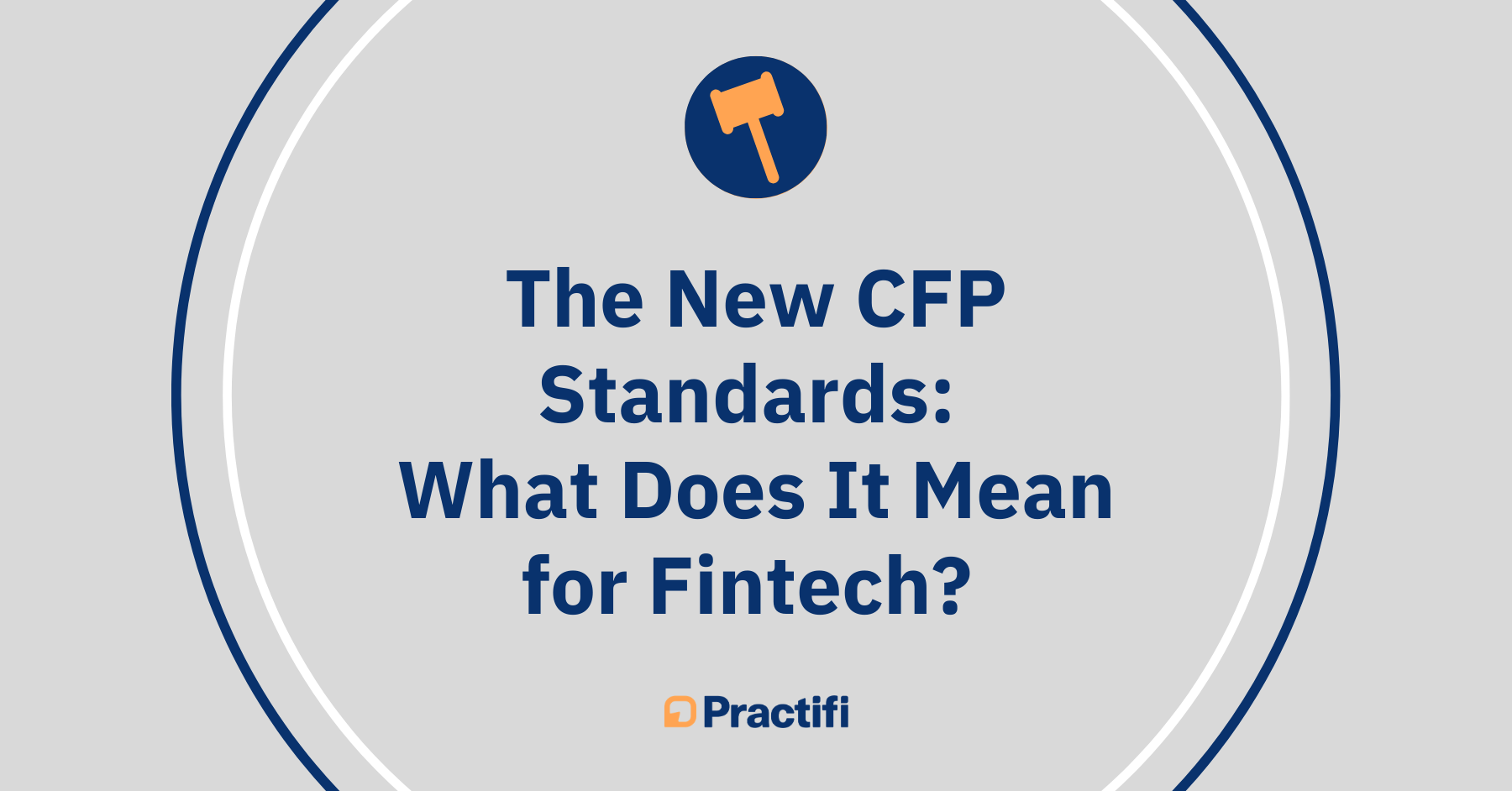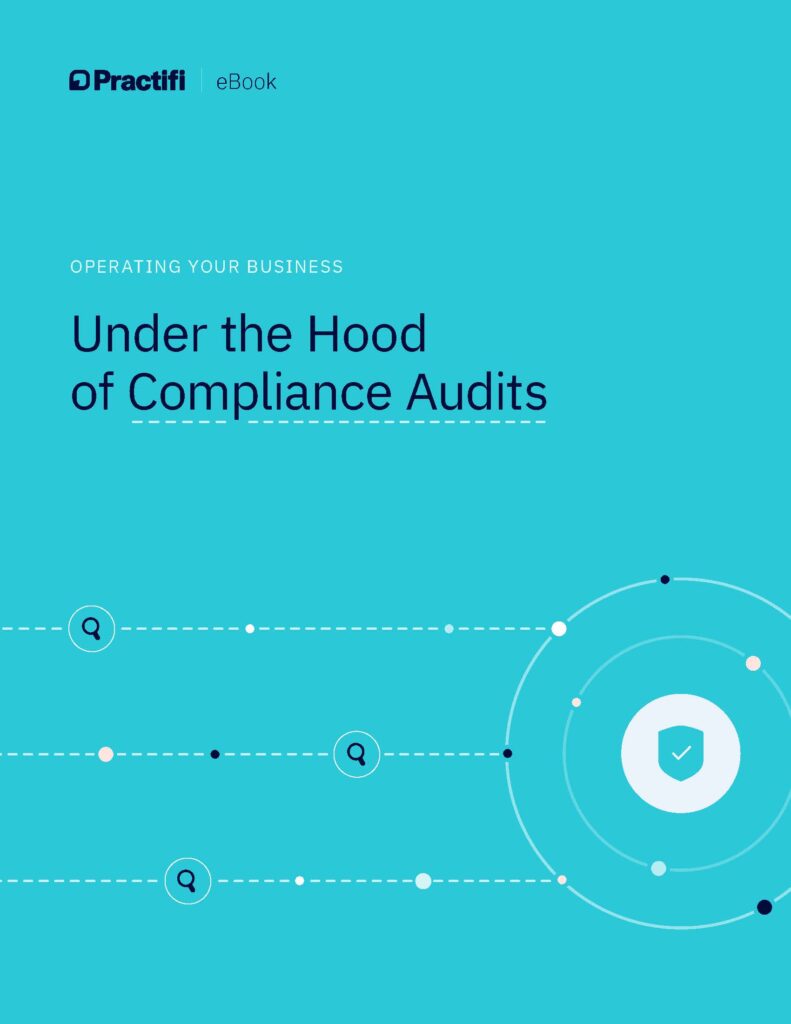
The New CFP Standards:
What Does It Mean for Fintech?

BY APRIL RUDIN
GUEST CONTRIBUTOR
The Certified Financial Planners Board of Standards recently gave advisory firms further reason to closely review their practices and ensure they’re delivering the best financial services possible. As of June 30, 2020, the CFP Board is enforcing the newest updates to its Code of Ethics and Standards of Conduct, ending the months-long grace period that started when the changes went into effect in October 2019.
While some of the updates simply reinforce industry standards that financial planners and advisors no doubt already adhere to, a few new additions will have an immediate impact on advisory firms and their wealth management technology.
What’s changed with the CFP standards?
In many ways, the new fiduciary standards more clearly stress the need for financial planners to act in their clients’ best interests at all times. Advisory firms are expected to avoid conflicts of interest and refrain from recommending financial services or strategies that don’t align with their clients’ financial goals.
Truthfully, there’s nothing entirely new with that particular message. The U.S. Securities and Exchange Commission (SEC) and Financial Industry Regulatory Authority (FINRA) both have similar regulations in place, so mindful wealth management and financial services professionals already hold themselves to a higher standard of service.
With that in mind, the threat of discipline from the CFP Board in the form of censure, suspension or revocation – while certainly nothing to dismiss out of hand – may not carry quite the same weight as facing a reprimand from the SEC. Nevertheless, it adds extra incentive to maintain a strict duty of loyalty and make financial recommendations that serve the client above anyone else – including financial planners themselves.
So, the new CFP Board Code of Conduct update is not so much an earth-shattering development as it is yet another reason to abide by industry best practices when providing financial advice.
Fintech’s role in CFP Board compliance
The CFP Standards mirror several aspects of the updated SEC and FINRA regulations, including guidelines that further clarify financial planners’ responsibilities documenting their advisory processes. In particular, firms are expected to create a record of the vetting process when considering different investment vehicles to recommend to their clients. Comprehensive business management software can help firms demonstrate their compliance by creating an audit trail that details every step taken to assess investment options and develop a financial plan that makes the most sense for customers’ long-term financial goals.
The CFP Board also expanded its ethical standards to include technology recommendations. The same mindful approach financial advisors use to vet and suggest investment vehicles also applies to financial technology. Financial planners, whether they are wholly independent or working for a large firm, must understand the exact functionalities of the software they use or recommend to clients.
That degree of care is good for both financial advisors and their clients. Taking the time to fully assess potential technology purchases helps wealth management professionals select solutions that will serve their long-term needs rather than buy the flashiest application available, which may not meet their biggest demands.
Deliver a better client experience with better technology
By fully understanding what new technology solutions like analytics-enabled portfolio management or financial planning platforms can do and how they can serve client needs, financial planners can provide better support and more informed advice. That, in turn, builds trust and confidence in advisory firms, forging a stronger relationship between clients and financial planners. With the right technology, everyone wins.
At the end of the day, the CFP Board standards and advisory firms share the same goal: Facilitate better financial services that deliver more value to clients. Adhering to both the letter and spirit of these new regulations will not only keep financial planners on the right side of compliance, but will also cultivate long-lasting and mutually beneficial client relationship.
Technology has a major part to play in CFP, SEC and FINRA compliance, and the new regulatory standards provide a fantastic opportunity for firms to reassess their tools and find solutions that will help them better serve their clients.








